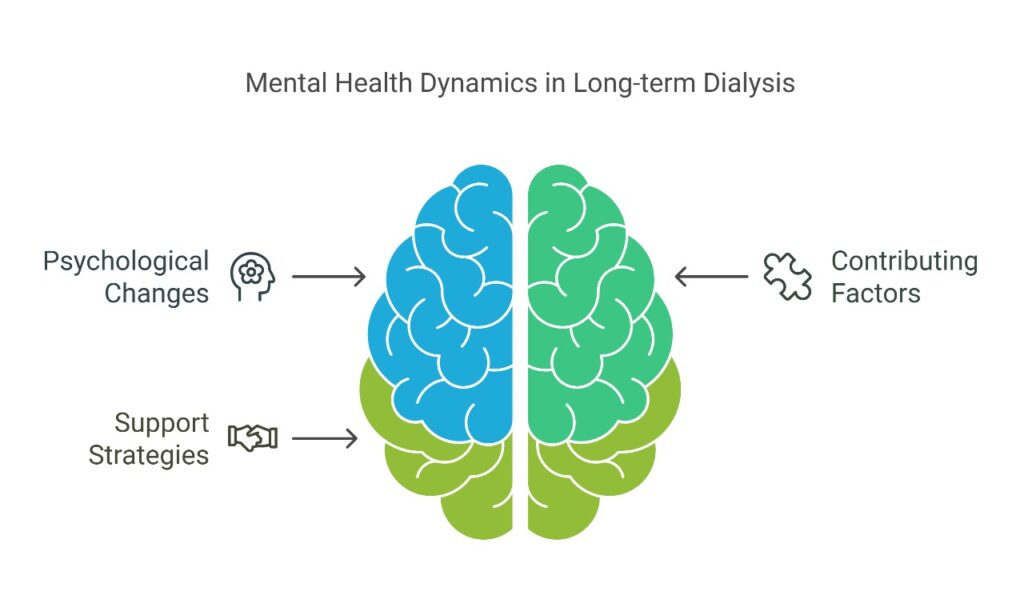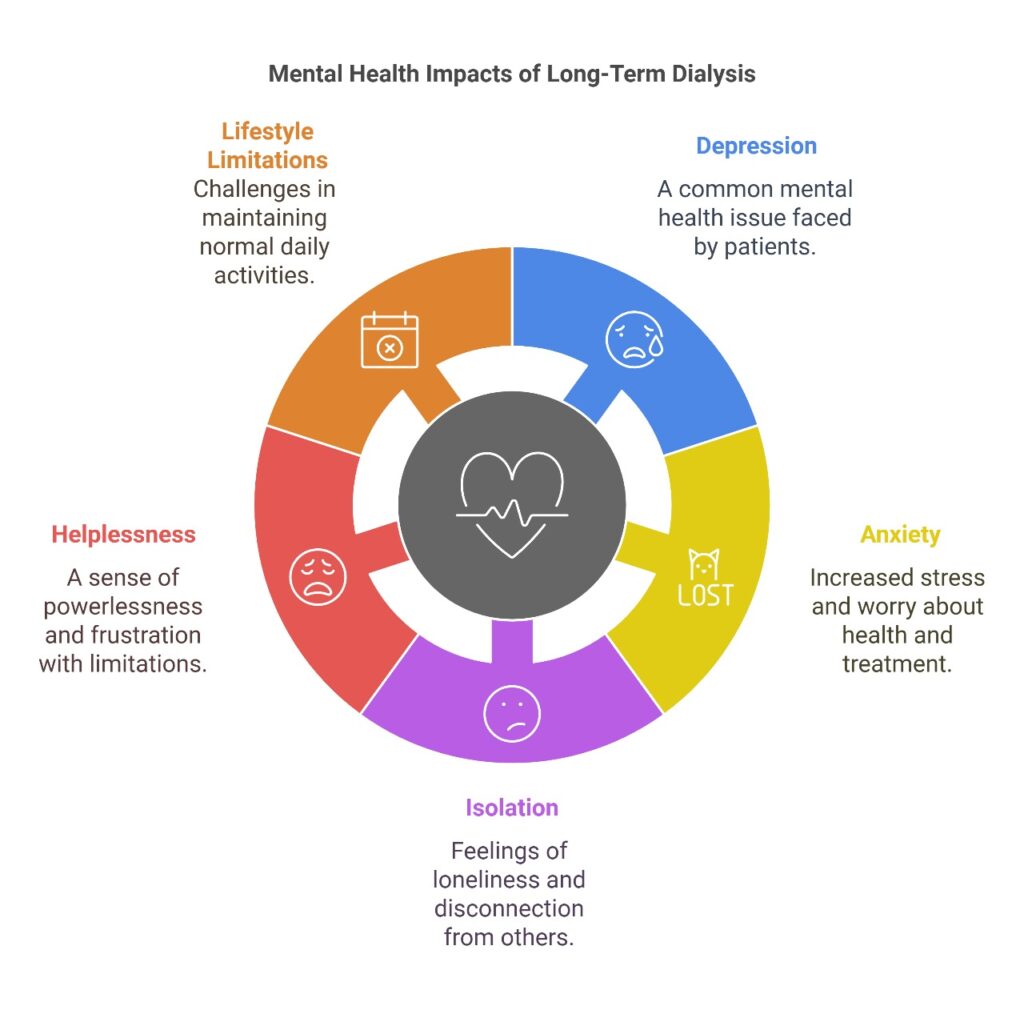Dialysis is a life-sustaining treatment for individuals with kidney failure, but it can also have profound effects on mental health. Patients who have been on dialysis for more than five years often experience a range of psychological changes that can impact their overall well-being. This blog explores the mental health challenges faced by long-term dialysis patients, the factors contributing to these changes, and potential strategies for support and improvement.
Understanding the Mental Health Landscape
Long-term dialysis can lead to various mental health issues, including depression, anxiety, and feelings of isolation. The chronic nature of kidney disease and the demands of regular dialysis sessions can create a sense of helplessness and frustration. Patients may struggle with the limitations imposed on their lifestyle, leading to a decline in their overall mental health.

Common Mental Health Challenges
Depression: Studies have shown that depression is prevalent among dialysis patients, with rates significantly higher than in the general population. The ongoing physical health challenges, coupled with the emotional toll of living with a chronic illness, can lead to feelings of sadness and hopelessness.
Anxiety: The uncertainty surrounding health outcomes and the fear of complications can contribute to heightened anxiety levels. Patients may worry about their treatment, potential hospitalizations, and the impact of their condition on their loved ones

Social Isolation: Regular dialysis sessions can disrupt social interactions and limit participation in activities. This isolation can exacerbate feelings of loneliness and contribute to a decline in mental health.
Cognitive Changes: Some patients may experience cognitive decline, often referred to as “dialysis dementia.” This can manifest as memory issues, difficulty concentrating, and other cognitive impairments, further complicating their mental health status.
Factors Influencing Mental Health
Several factors can influence the mental health of patients on long-term dialysis:
Physical Health: The overall physical condition of the patient plays a significant role in their mental well-being. Complications from kidney disease, such as cardiovascular issues or infections, can lead to increased stress and anxiety.

Support Systems: The presence of a strong support network, including family, friends, and healthcare providers, can positively impact mental health. Conversely, a lack of support can lead to feelings of isolation and despair.
Coping Mechanisms: Patients who develop healthy coping strategies, such as engaging in hobbies, exercising, or seeking therapy, may experience better mental health outcomes compared to those who do not.
Strategies for Improvement
To address the mental health challenges faced by long-term dialysis patients, several strategies can be implemented:
Psychological Support: Regular mental health screenings and access to counseling services can help identify and address mental health issues early on.
Support Groups: Connecting with others who are experiencing similar challenges can provide emotional support and reduce feelings of isolation.
Education and Empowerment: Providing patients with information about their condition and treatment options can empower them to take an active role in their health, reducing anxiety and fostering a sense of control.

Holistic Approaches: Incorporating holistic practices such as mindfulness, meditation, and relaxation techniques can help improve mental well-being.
Family Involvement: Encouraging family members to participate in the treatment process can strengthen support systems and improve the patient’s mental health.
Conclusion
The mental health of patients on dialysis for over five years is a critical aspect of their overall care. By recognizing the challenges they face and implementing supportive strategies, healthcare providers and loved ones can help improve their quality of life. Addressing mental health is not just an adjunct to physical health; it is an integral part of the holistic care that every dialysis patient deserves.

Author: Dr. Deepak Agarwal
VP- Clinical
DCDC Kidney Care

